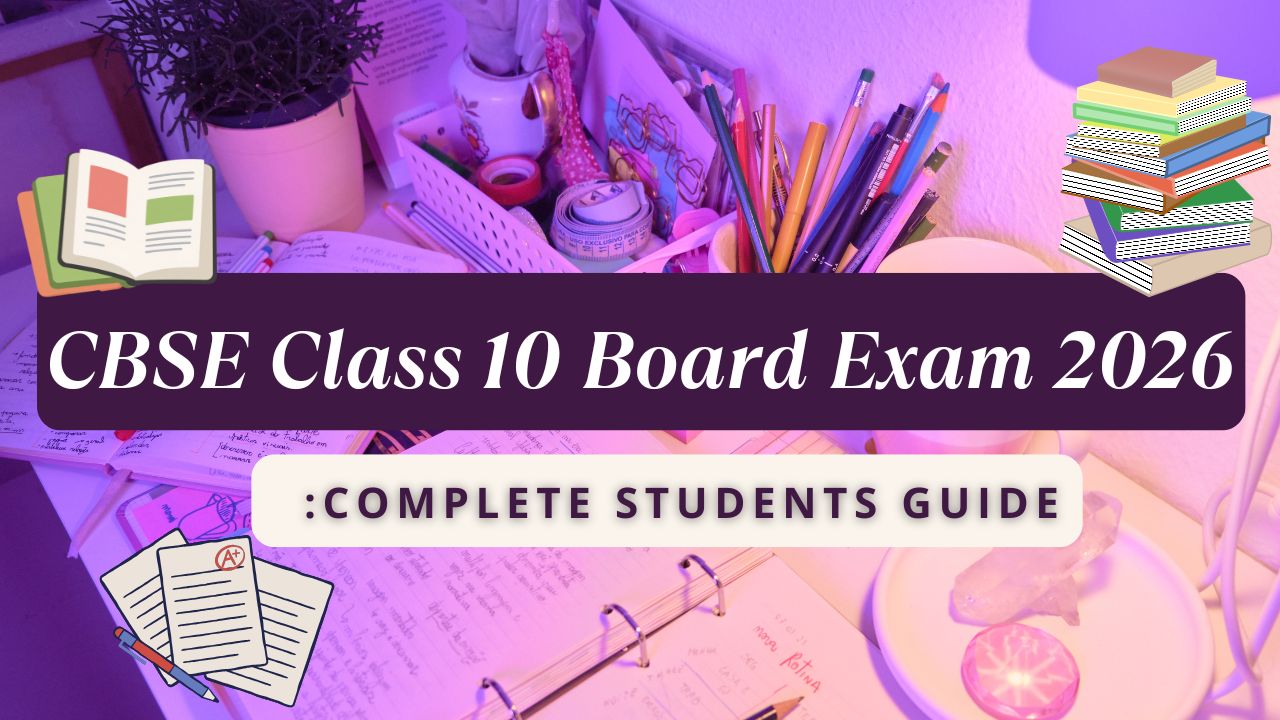Bhoomi Kaushik
Get Real Experts on your side
Before venturing to seek career counseling, answer a few basic questions so we can connect you with our best expert counselor for personalised guidance and mentorship.




Bhoomi Kaushik
03/12/2024
Whether preparing for exams, tackling a new subject, or simply trying to improve your study habits, having a clear and organized study plan can be a game-changer. A study plan helps you stay focused, manage your time, and break down tasks into smaller, manageable chunks. Here is the ultimate guide that will walk you through steps to create a study plan that works for you, no matter your academic goals.
1. Set Your Objectives:
The first thing in preparing a study plan is defining your objectives. Is it an examination coming? Do you want to gain a bit in some particular area? Defining your clear, mean Suable goals will guide and motivate your study sessions.
How to Set Goals

Divide
significant objectives into small, more workable pieces.
Prioritize your goals, Focus on what matters most to your success.
2. Assess Your Current Schedule
Before
planning, you must understand how much time you have to study. Look at your
daily or weekly schedule and identify gaps where you can fit in study sessions.
Steps for Assessing Your
Schedule:
Write
down all your commitments, such as classes, work, or extracurricular
activities.
Determine
your peak energy times:
Do you tend to be more alert in the morning or at
night? Schedule your study time for when you are most alert.
Be
realistic: Avoid over-scheduling yourself—leave space for breaks,
sleep, and play.
3. Select Appropriate Study Strategies
Everyone
learns differently, so you should select a study strategy that suits your
learning style. Here are some popular study strategies:
Active
recall: Testing yourself on the material to improve memory
retention.
Spaced
repetition: Reviewing material over
increasing intervals to combat forgetting.
Pomodoro
Technique: Studying in focused 25-minute
bursts, followed by short breaks.
Mind
Mapping: Using diagrams to organize information visually.
Summarization: Write
summaries of the material in your own words to solidify your understanding.
Consider
your strengths and preferences when choosing which study methods to include in
your plan.
4. Break down Your Study Sessions

Time Blocks: Set a certain amount of time for studying (1 hour).
Make sure each session is focused and goal-oriented.
Topic
Segmentation: Divide your subject matter into smaller sections.
Instead of trying to learn an entire chapter, learn one section at a time.
Regular
Review: Set aside time to review material regularly. This may mean reviewing at
the end of each week or before each exam.
5. Develop a weekly or monthly study
schedule
A
visual schedule may help you stay on track and avoid overloading. You can
choose whether you prefer a weekly or monthly study calendar, depending on when
your deadlines are.

Steps
for Creating a Study Calendar
Start
by listing all your important dates, such as exams or project deadlines.
Work
backward from those dates, planning review sessions and study time for each
subject or topic.
Color-code
your calendar to highlight priorities, making it easier to identify which
subjects need more attention.
6. Breaks and Downtime
Studying
for long periods without breaks can cause burnout and decreased focus. It is essential
to schedule regular breaks to recharge your mind and body.
Tips
for Breaks:
Follow
the Pomodoro Technique for 25-minute focused study sessions followed by
5-minute breaks.
Take
longer breaks (15-30 minutes) after 2-3 hours of studying to relax, eat, or
exercise.
|
Undergraduate Programs |
Post Graduate Programs |
7. Stay Accountable
Staying
disciplined is one of the most challenging aspects of following a study plan.
Keep yourself accountable to your study plan by tracking your progress and
staying motivated.
Ways
to Stay Accountable:
Share
your study goals with a friend or study partner.
Reminders
or alarms will keep you on track.
Reward
yourself after finishing your study sessions or after certain milestones.
8. Adapt and Be Flexible
Life
has a way of throwing you off schedule. You might have to adjust your plan
sometimes because of an unexpected event or change in your schedule, an
unexpected assignment, or an accident. It would help if you adapted to it.
How
to Adapt Your Plan:
Don't
worry if you miss a study session. Just reschedule it for another time.
Change
your study plan if you need more time to understand something than expected.
Be
gentle with yourself—after all, it's about progress, not perfection.
9. Evaluate and Reflect
Evaluate
the success of your study plan at the end of each week or study period. Are you
getting closer to achieving your goals? Were there some techniques you found to
be more effective than others? Use this self-evaluation to improve your plan
moving forward.
Questions to Ask yourself:
Did
I follow my study schedule?
Which
of the following study techniques worked best for me?
How
can my next study plan be more effective?
10. Persevere and Stay the Course
The
key to any successful study plan is being constant. Do not expect miracles in
one night, but understand that minor, steady improvements eventually culminate
in significant results. Stay Committed to your study plan, and remember that
you accumulate toward your goal every time you study.
Creating
an effective study plan is more than just filling in a calendar. It's About Understanding
your goals, prioritizing tasks, and developing a study routine that meets your
unique needs. Following the steps outlined in this guide, you can organize your
study sessions, boost your productivity, and stay on track toward achieving
academic success.
Remember, a study plan is not a rigid agenda but rather an instrument one can use to stay relatively organized and control one's time better to reduce even more stress. Adapt according to what works for you. Stay Disciplined, and celebrate the progress!










.png)











.jpg)


.jpg)




.png)







.png)

.png)




.png)

.png)
.png)



.png)

.png)


.png)

.png)


.png)

.png)

.png)
.png)

 (1).png)



.png)

.png)
.png)


.png)


.png)


.png)

.png)







.png)





.png)


.png)














.png)













.png)




.jpg)






.png)




.png)


.png)
.png)
.png)
.jpg)



.png)


.png)
.png)
.png)



.png)











.png)
.png)



.png)


.png)
.png)


.jpg)







.jpg)









.jpg)





.png)


.jpg)



Before venturing to seek career counseling, answer a few basic questions so we can connect you with our best expert counselor for personalised guidance and mentorship.
